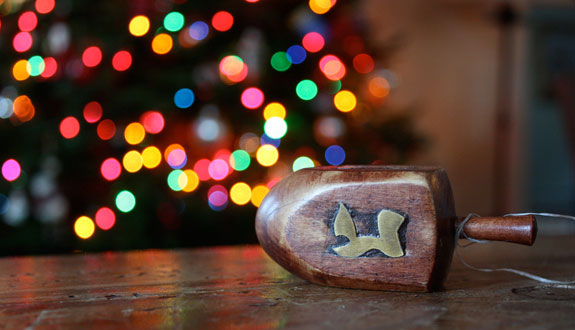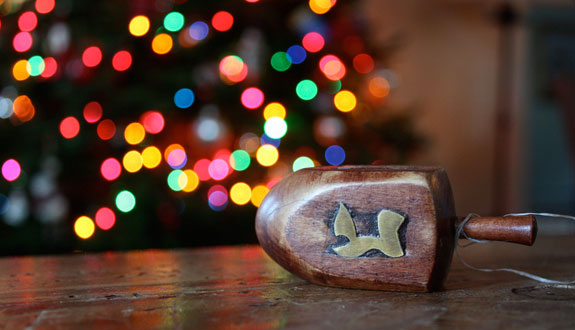
Note: As of August 2024, the LSAT will no longer have a Logic Games Section. The June 2024 exam will be the final LSAT with Logic Games. Learn more about the change here.
There are so many ways to get into the holiday spirit. Decorations, advent calendars, classic Christmas movies, gingerbread cookies, eggnog, submitting yourself to the unceasing churn of the late capitalist machine by doing an excess of holiday shopping.
If you ask us, though, the best way to up your holiday cheer is with a little bit of analytical reasoning. So today, we’re offering a special set of holiday-themed Logic Games. Complete these games, and you’ll be given the greatest gift of all … deductive acuity.
The LSAT-obsessed elves at the Blueprint HQ made these games, using real LSAT logic games as an inspiration. If you’re truly stumped, we’ve provided some quick tips below to help you find deductions, but you should attempt the games on your own before checking out those hints.
Reindeer Games
You know there’s Dasher and Dancer, Prancer and Vixen, Comet and Cupid, Donner and Blitzen. But do you recall … the most famous reindeer of all? Wait a minute. I just listed the eight less famous reindeer, and conceded that you knew of them. Of course you recall *the most famous* reindeer. I don’t know what I was thinking. But when Santa holds a track meet for his less notable reindeer, can you figure out the results?
Santa Clause is holding a track meet for his eight less famous reindeer — Dasher, Dancer, Prancer, Vixen, Comet, Cupid, Donner, and Blitzen — which Santa dubs “The Reindeer Games.” As part of the Reindeer Games — from which Rudolph was rudely excluded — the eight reindeer compete in a 100-yard dash. Each reindeer finishes will finish the race, and there are no ties. The order in which the reindeer finish the race is subject to the following conditions:
Comet finishes before Prancer.
Prancer finishes before Vixen, Donner, and Blitzen.
Blitzen finishes before Dasher (ironically).
Cupid finishes before Dasher and Dancer.
1. Which one of the following reindeer CANNOT be one of first four reindeer to finish to dash?
a. Dasher
b. Dancer
c. Vixen
d. Donner
e. Blitzen
2. If Cupid finishes sixth, which of the following must be true?
a. Prancer finishes second.
b. Blitzen finishes third.
c. Vixen finishes fourth.
d. Donner finishes fifth.
e. Dancer finishes seventh.
3. If Prancer finishes fourth, then any of the following could be true EXECPT?
a. Cupid finishes second.
b. Comet finishes third.
c. Dasher finishes fifth.
d. Donner finishes sixth.
e. Blitzen finishes seventh.
4. How many of the eight reindeer could be the one to finish second?
a. three
b. four
c. five
d. six
e. seven
5. If Blitzen finishes seventh, which one of the following must be false?
a. Dancer finishes second.
b. Comet finishes third.
c. Donner finishes fourth.
d. Vixen finishes fifth.
e. Cupid finishes sixth.
6. if Blitzen finishes third, how many of the eight reindeer could be the one to finish fourth?
a. two
b. three
c. four
d. five
e. six
Tips: In all basic, one-to-one ordering games, you should look out for ways to combine the rules. Look for players mentioned in more than one rule. In this particular game, you can combine all the rules into a large ordering chain that includes all eight reindeer. And pay special attention to the most restricted reindeer, on both sides of the ordering chain. Comet, unsurprisingly, is super fast — he has to finish before five other reindeer. Dasher, shockingly, is not that good at dashing, and has to finish after four other reindeer.
Christmas Movies
We’re not going to bore you with another discussion about whether Die Hard is a Christmas movie — obviously it’s a romantic comedy set during Christmas. But choosing which Christmas movies to view, and scheduling when to view each, can be a laborious task.
A movie theater will choose four of six possible Christmas movies — Die Hard, Elf, Frosty the Snowman, Gremlins, Home Alone, and It’s a Wonderful Live — to show over a week during the holiday season, from Wednesday through Saturday. On each day, exactly one movie is shown, and each movie that is selected will be shown only once. The schedule of the movie showings is subject to the following constraints:
Die Hard and It’s a Wonderful Life must be shown, but they cannot be shown
consecutively.
If Gremlins is shown, Home Alone cannot be.
If Elf is shown, it must be shown on Friday
If both Elf and Frosty the Snowman are shown, they must be shown on
consecutive days.
1. Which one of the following could be schedule of the moving showings, with the four movies listed in the order in which they are shown?
a. Elf, It’s a Wonderful Life, Home Alone, Die Hard
b. Frosty the Snowman, It’s a Wonderful Life, Elf, Die Hard
c. Gremlins, Die Hard, Home Alone, It’s a Wonderful Life
d. Home Alone, It’s a Wonderful Life, Frosty the Snowman, Die Hard
e. It’s a Wonderful Life, Frosty the Snowman, Elf, Home Alone
2. If Home Alone is shown on Saturday, which one of the following must be true?
a. Die Hard is shown on Wednesday.
b. Elf is shown on Friday.
c. Frosty the Snowman is shown on Thursday.
d. Gremlins is shown on Thursday.
e. It’s a Wonderful Life is shown on Wednesday.
3. Any of the following could be true EXCEPT:
a. Elf is shown immediately after Die Hard.
b. Frosty the Snowman is shown some time after Elf is shown.
c. Gremlins is shown, but not on Friday.
d. Frosty the Snowman is the only movie shown between Die Hard and It’s a
Wonderful Life.
e. More than one movie is shown between Die Hard and It’s a Wonderful Life.
4. If Frosty the Snowman is not shown, which one of the following must be true?
a. Die Hard is shown on Wednesday.
b. Elf is shown on Friday.
c. Gremlins is shown on Thursday.
d. Home Alone is shown on Friday.
e. It’s a Wonderful Life is shown on Saturday.
5. If Gremlins is shown on Thursday, how many of the six movies could be the one shown on Saturday?
a. one
b. two
c. three
d. four
e. five
Tips: Much like how Die Hard combines action with holiday cheer, or how Gremlins combines comedy with horror, or how Home Alone combines a family-friendly fun with disturbing sadism, this game combines grouping with ordering. We have to “select” four of six movies to be shown, but once we make our selection, we have to order the films from Wednesday through Saturday. Pay special attention to your most restricted film: Elf. If it’s shown, it has to be shown on Friday. You can construct two quick scenarios — one with Elf in and on Friday, and one with Elf out — to quickly advance through the questions. Also, of note: if Gremlins and Home Alone can’t both be selected, at least one of the two must be out at all times.
Made-up Holidays
There are so many great fictional holidays, from Whacking Day, to Leap Day, to Freedom Day, to Treat Yo Self Day. But none are more amazing than two Yuletide alternatives — Chrismukkah and Festivus. So put on your Yamaclaus and gather round an unadorned pole, to play a challenging game about these two Christmas competitors.
Six people — Elaine, George, Jerry, Kirsten, Ryan, and Seth — will celebrate either one or both of two made-up holidays — Chrismukkah (a Christmas/Hanukkah hybrid in which eight days of presents are followed by one day of many presents) or Festivus (an anti-commerical alternative to Christmas, which features both an “Airing of Grievances” and “Feats of Strength”). Exactly four people will celebrate Chrismukkah, and exactly four people will celebrate Festivus. Two people will celebrate both. The celebrations are subject to the following conditions:
George will not celebrate the same holiday as Jerry.
If Seth celebrates Chrismukkah, then Ryan must celebrate both Chrismukkah
and Festivus.
If Jerry celebrates Festivus, then Kirsten must also celebrate Festivus.
1. Which one of the following could be an accurate matching of the holiday to the person celebrating that holiday?
a. Chrismukkah: Elaine, George, Kirsten, Ryan
Festivus: Elaine, Jerry, Ryan, Seth
b. Chrismukkah: Elaine, George, Ryan, Seth
Festivus: Elaine, Ryan, Seth
c. Chrismukkah: Elaine, Jerry, Kirsten, Ryan
Festivus: George, Jerry, Ryan, Seth
d. Chrismukkah: Elaine, Jerry, Kirsten, Ryan
Festivus: Elaine, George, Ryan, Seth
e. Chrismukkah: Elaine, Jerry, Kirsten, Seth
Festivus: Elaine, George, Kirsten, Ryan
2. If neither Jerry nor Seth celebrate Chrismukkah, then which one of the following must be true?
a. Elaine celebrates both holidays.
b. Kirsten celebrates both holidays.
c. Ryan celebrates both holidays.
d. Elaine does not celebrate Festivus.
e. Kirsten does not celebrate Festivus.
3. Which one of the following two people could be the two who celebrate both holidays?
a. Elaine and George
b. Elaine and Seth
c. Jerry and Kirsten
d. Kirsten and Seth
e. Ryan and Seth
4. If Ryan and Seth celebrate different holidays, then which one of the following could be a pair of two people who only celebrate Festivus?
a. Jerry and Seth
b. Jerry and Kirsten
c. George and Kirsten
d. Elaine and Jerry
e. Elaine and George
5. Which one of the following two people could be the two who only celebrate Chrismukkah?
a. Elaine and George
b. Elaine and Seth
c. George and Jerry
d. George and Kirsten
e. Ryan and Seth
6. If Elaine only celebrates one holiday and George only celebrates the other holiday, then which of the following must be true?
a. Elaine celebrates Festivus.
b. Kirsten celebrates Chrismukkah.
c. Kirsten celebrates Festivus.
d. Seth celebrates Chrismukkah.
e. Seth celebrates Festivus
Tips: It doesn’t seem like it’s going to do much, but make two scenarios in this game — one with Jerry celebrating Chrismukkah and George celebrating Festivus, and one with George celebrating Chrismukkah and Jerry celebrating Festivus. It doesn’t lead to a ton of deductions, but it does give you a head start on some of the questions. Additionally, remember: when you’re forming a group of four from six potential players, as soon as you realize that two players can’t join a given group, that means the other four players must join that group.
Yankee Swap
Yankee swap — AKA white elephant, AKA dirty Santa — is coldest and most unforgiving of all Holiday ceremonies. You may think you’ve selected an amazing gift, until that gift is being pried from your unsuspecting hands by a supposed loved one. And, befitting this extremely ruthless holiday tradition, we have an extremely ruthless game about an office party Yankee swap. On the bright side, this game doesn’t quite follow the rules of a real Yankee swap … that would be very complicated.
Four officemates — Jim, Michael, Pam, and Ryan — will play a game of Yankee swap at the company Christmas party. During the first round of the Yankee swap, each officemate will select one of four gifts — a foot bath, an iPod, an old shirt, and a teapot — from a pile. The order in which they select, from first to fourth, is to be decided by a random drawing. Each officemate has ranked the presents from first (highest) to fourth (lowest), as follows:
Jim: old shirt, iPod, teapot, foot bath
Michael: iPod, teapot, foot bath, old shirt
Pam: old shirt, teapot, iPod, foot bath
Ryan: iPod, old shirt, teapot, foot bath
The following restrictions must apply:
Each officemate selects a gift that has not been selected previously.
Each officemate selects only one gift.
Each officemate selects the gift that he or she has ranked highest among the unselected gifts.
1. Which one of the following is a possible matching of officemates with the gifts they select?
a. Jim: foot bath; Michael: old shirt; Pam: iPod; Ryan: teapot
b. Jim: teapot; Michael: iPod; Pam: foot bath; Ryan: old shirt
c. Jim: iPod; Michael: foot bath; Pam: teapot; Ryan: old shirt
d. Jim: old shirt; Michael: foot bath; Pam: iPod; Ryan: teapot
e. Jim: old shirt; Michael: teapot; Pam: iPod; Ryan: foot bath
2. Which one of the following must be true?
a. At most one of the officemates selects the gift he or she ranks first.
b. At most one of the officemates selects the gift he or she ranks second.
c. At least one of the officemates selects the gift he or she ranks first.
d. At least one of the officemates selects the gift he or she ranks second.
e. At least one of the officemates selects the gift he or she ranks third.
3. Which one of the following could be true?
a. Exactly two of the officemates each select the gift he or she ranks third.
b. Exactly two of the officemates each select the gift he or she ranks fourth.
c. Exactly three of the officemates each select the gift he or she ranks second.
d. Exactly three of the officemates each select the gift he or she ranks third.
e. Exactly three of the officemates each select the gift he or she ranks fourth.
4. If Pam selects the foot bath, then which of the following could be true?
a. Exactly two of the employees each select the office he or she ranks second.
b. Exactly two of the employees each select the office he or she ranks third.
c. Exactly three of the employees each select the office he or she ranks first.
d. Jim selects the iPod
e. Michael selects the teapot
5. Which one of the following must be true?
a. Jim does not select the iPod.
b. Michael does not select the foot bath.
c. Michael does not select the teapot.
d. Ryan does not select the iPod.
e. Pam does not select the iPod.
Tips: Yikes, it’s kind of tough to figure out anything in this game … unless you make scenarios. Try making four scenarios based around each of the four officemates getting the first pick. How does Jim getting the first pick (and selecting the old shirt … what a chump) affect the other officemates’ preferences? How does Michael getting the first pick (and shamelessly selecting the iPod) affect the other offciemates’ preferences? And so on and cetera. There are some important deductions to be made there. Additionally, if any officemate has a gift ranked lower than the other officemates, that officemate cannot select that gift. For instance, Michael can’t select the old shirt. Everyone has the old shirt ranked first or second, but Michael has it ranked fourth. If Michael picks early, he’ll pick something else. If Michael picks late, the old shirt will already be selected by someone else. There’s another officemate who cannot select a certain gift … try to figure who that is, and which gift he or she cannot select.
Answer Key:
Reindeer Games
1. a
2. a
3. c
4. b
5. e
6. b
Christmas Movies
1. d
2. c
3. b
4. b
5. c
Made-up Holidays
1. d
2. b
3. e
4. a
5. a
6. c
Yankee Swap
1. c
2. c
3. a
4. e
5. e




